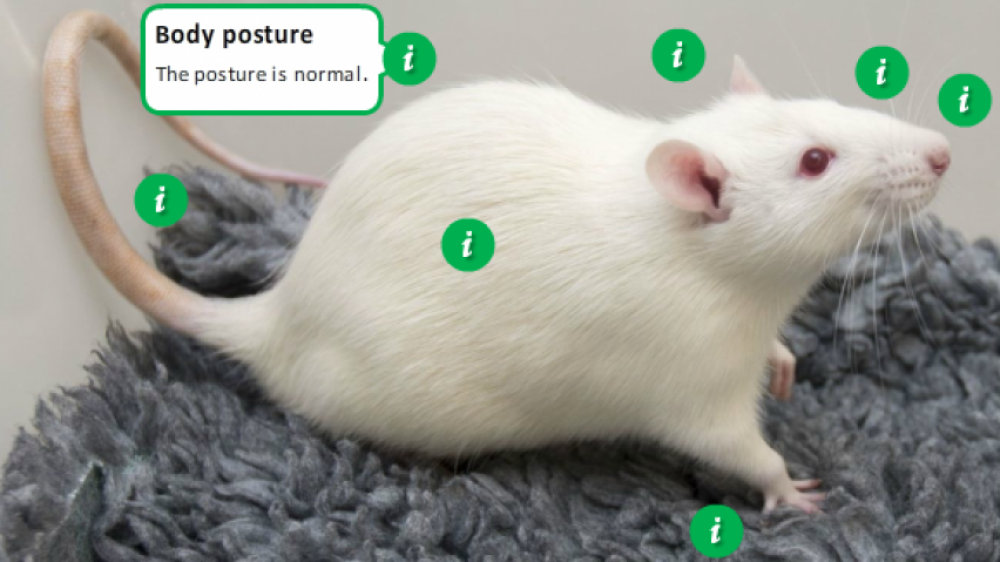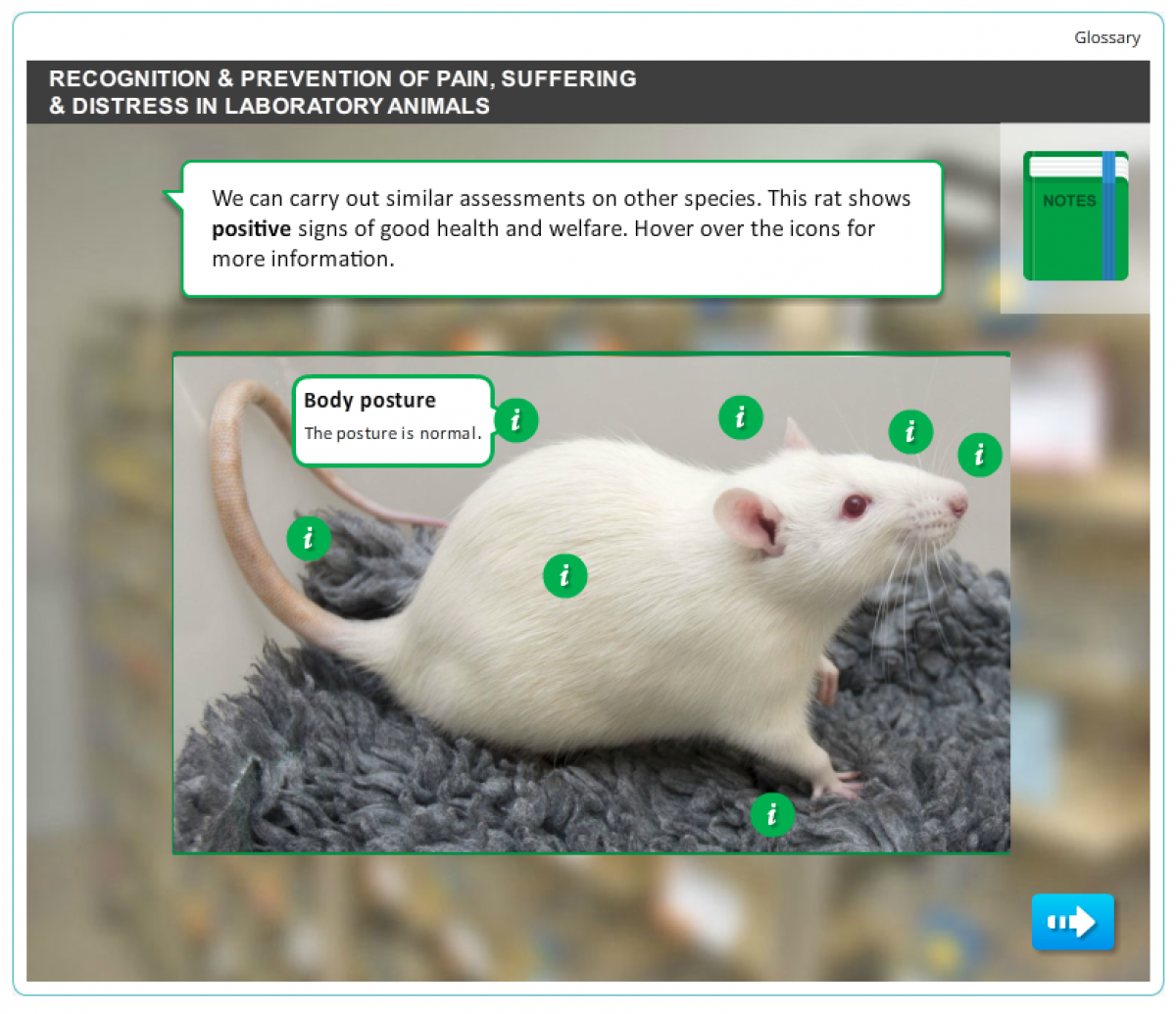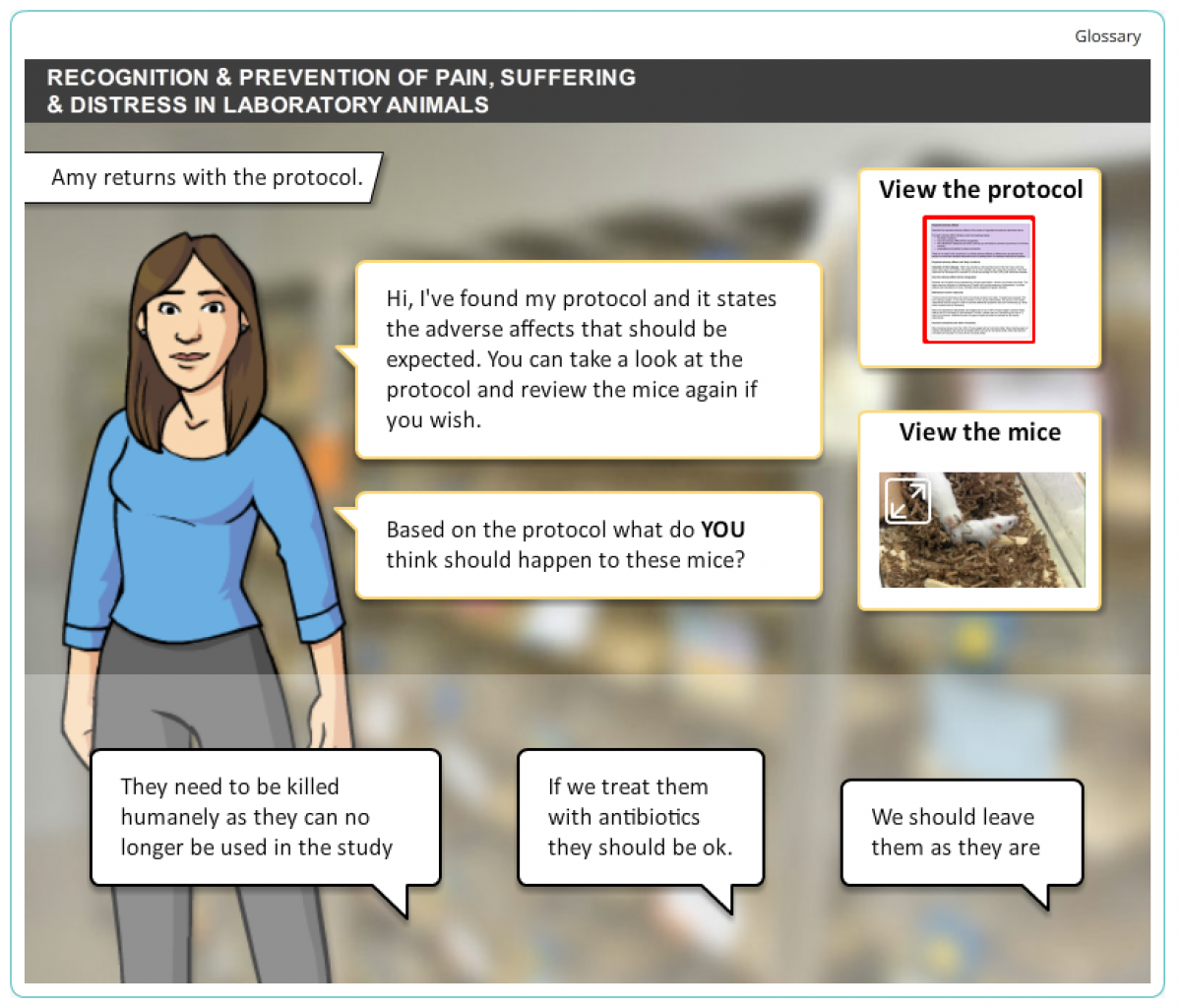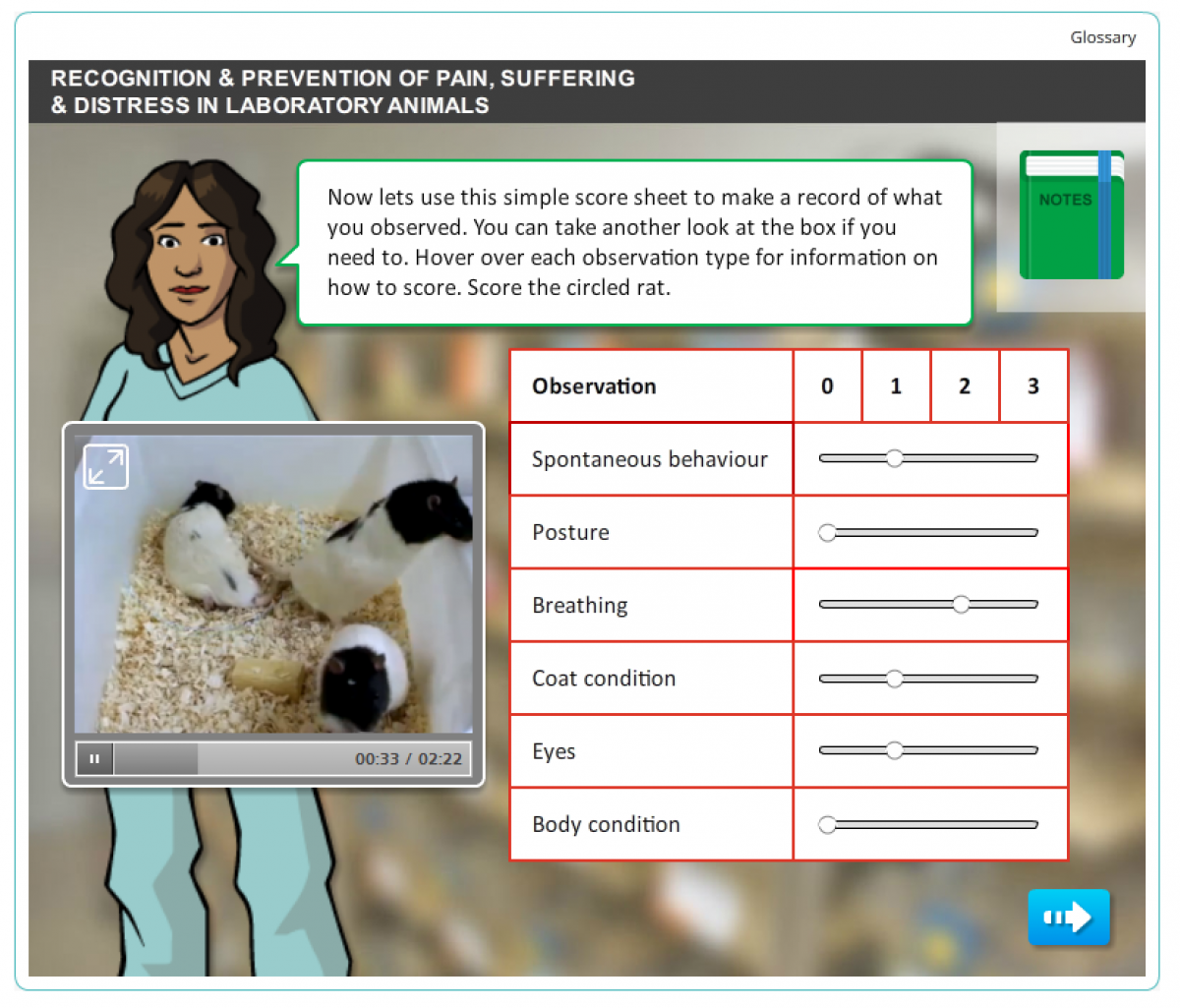A fresh approach to training in welfare assessment of laboratory animals

A new e-learning training package designed to help researchers and animal care staff identify signs of good and poor welfare in laboratory animals has been launched online.
The free resource, developed by Professor Paul Flecknell and his team at Newcastle University, is the second e-learning module to be released by the group as part of an NC3Rs Infrastructure for Impact award. Dr Mark Prescott, NC3Rs, highlights the advantages of the online, scenario-based approach, and the potential for improving the welfare of millions of animals worldwide.
The ability to recognise animals experiencing pain or distress, and to take appropriate action, is crucial for implementing the refinement principle of the 3Rs. This is important for scientific as well as ethical reasons, because pain and distress can affect the quality of research data, introduce unwanted variation and confound study outcomes. Effective welfare assessment by trained and competent staff is also important for ensuring that the protocol severity limits set out in project authorisations are not exceeded.
The last decade has seen an increase in understanding of the factors that cause pain and distress in laboratory animals and the development of novel methods for assessing animal welfare and avoiding or alleviating harm. For this knowledge to have a real impact, the information needs to be disseminated to researchers and animal care staff as widely as possible and in a readily accessible format. This is the objective of the latest e-learning resource funded by an NC3Rs Infrastructure for Impact award.

The resource 'Recognition and prevention of pain, suffering and distress in laboratory animals’ guides users through the process of assessing welfare – whether it be for conducting routine health checks, monitoring the effects of regulated procedures, or evaluating the impact of refinements, such as analgesia. Interactive images and video clips are used to highlight key physical and behavioural indicators of good and poor welfare in mice, rats, zebrafish and other common laboratory species. Recognising signs of suffering is essential in implementing humane endpoints and carrying out severity assessments, and information on these topics is also included in the resource.
This is the second training package from Professor Flecknell’s team to take a scenario-based approach to delivering the material and testing learning. Users are placed in realistic situations they may encounter in their own laboratory and asked, via a series of interactive questionnaires, to put their learning into practice – for example to identify animals with compromised welfare, and to make choices about what should be done about this. Different choices lead to different routes in the overall storyline, but the navigation ensures that all of the essential material is covered. Scenario-based learning, because it involves interactive problem solving in realistic contexts, has been shown to be a more effective, active form of learning than traditional, passive methods, such as simply reading or listening to information.

High quality online resources, such as this one, can significantly reduce the time required to be devoted to didactic lectures in training courses. They also give trainees greater freedom over when, where and at what pace they learn the training material. The three UK accrediting bodies (Society of Biology, Scottish Accreditation Board and Universities’ Training Group) all support use of the welfare assessment module as part of accredited training courses for personal licence holders under the UK Animals (Scientific Procedures) Act. A version which tracks user completion of the module is available on the Research Animal Training website.

We are excited about the new resource because of its potential to benefit millions of laboratory animals worldwide. Although specifically designed to deliver the learning objectives in Module 5 of the training framework established under EU Directive 2010/63/EU, the general principles and examples are applicable internationally and across a range of scientific disciplines. Use this resource today to refresh your knowledge and enhance your in-house training.
